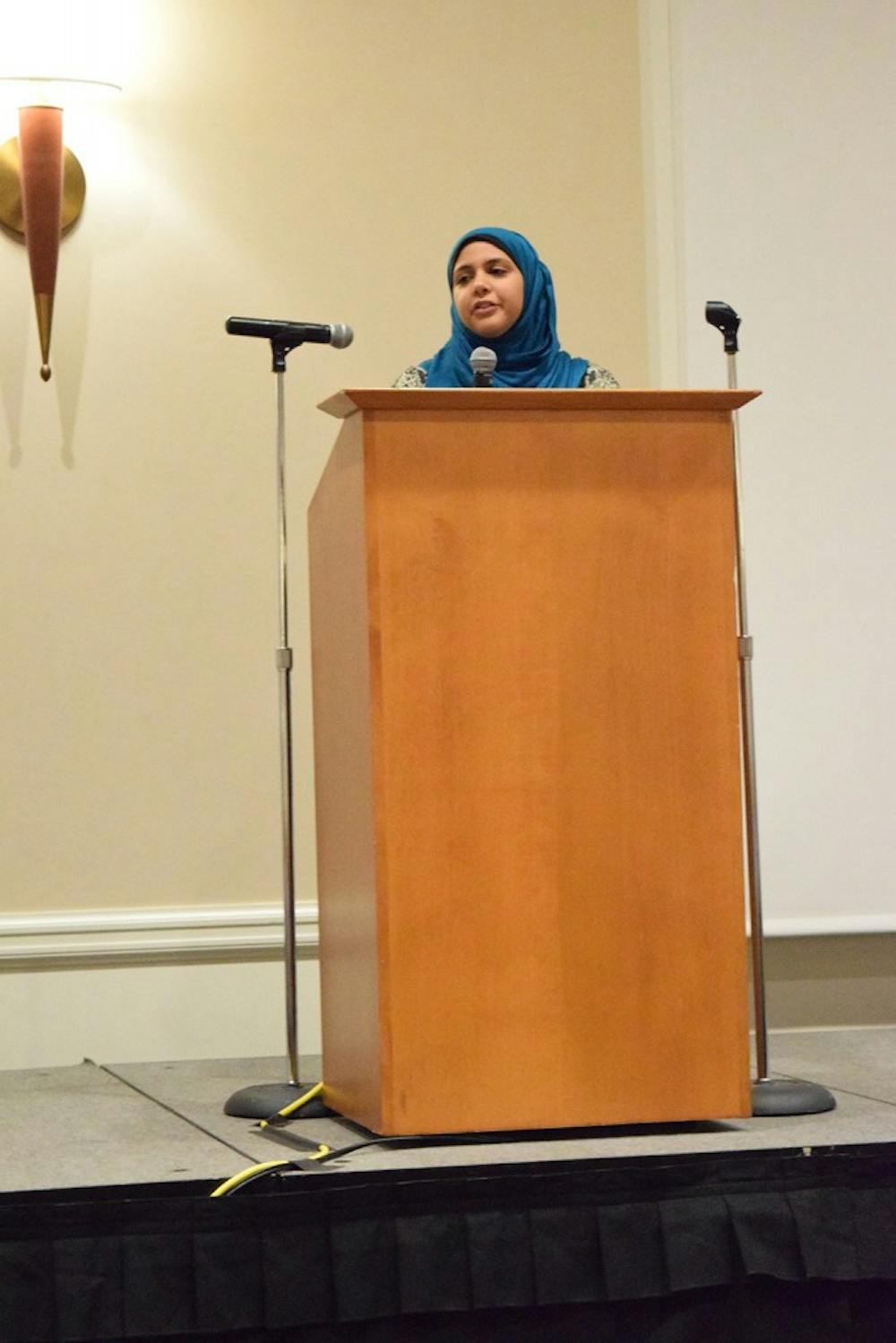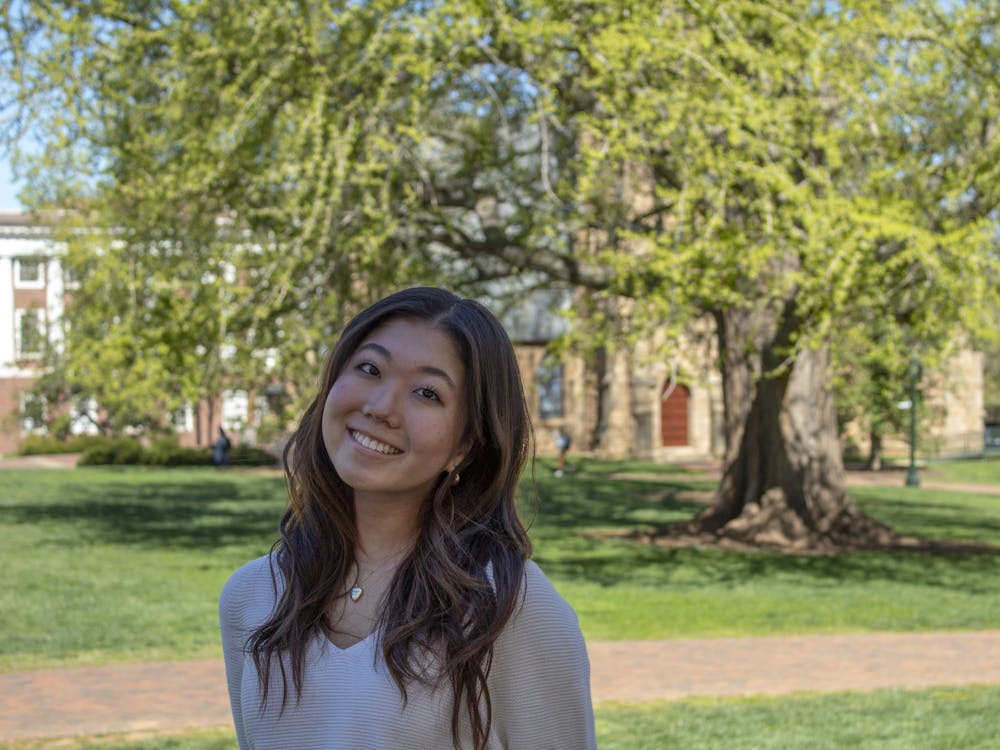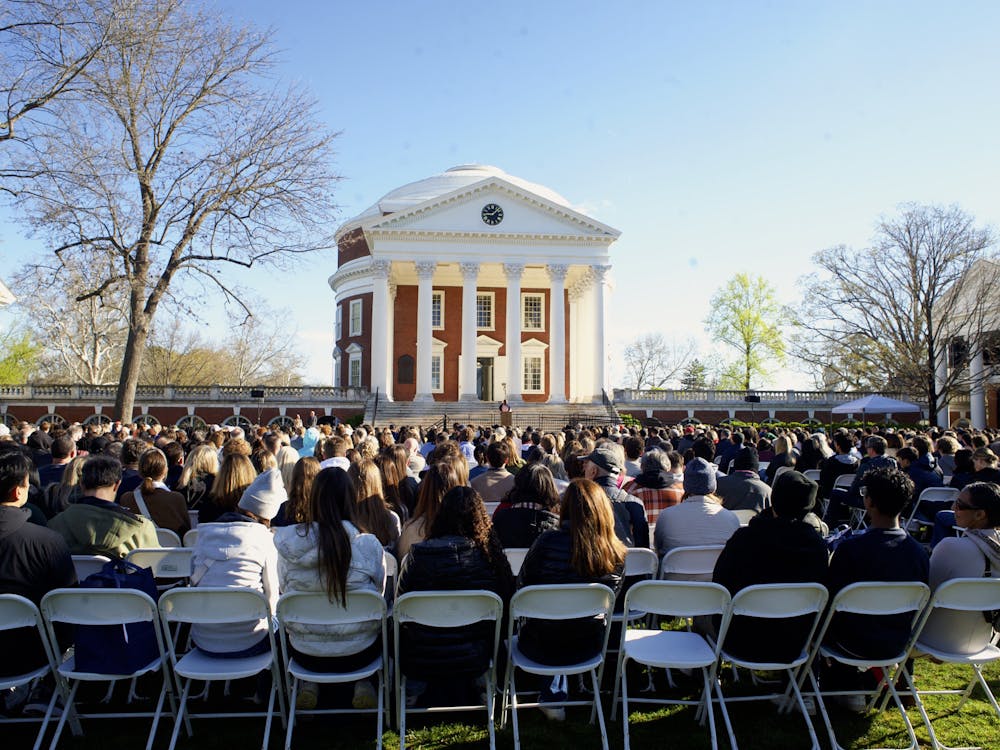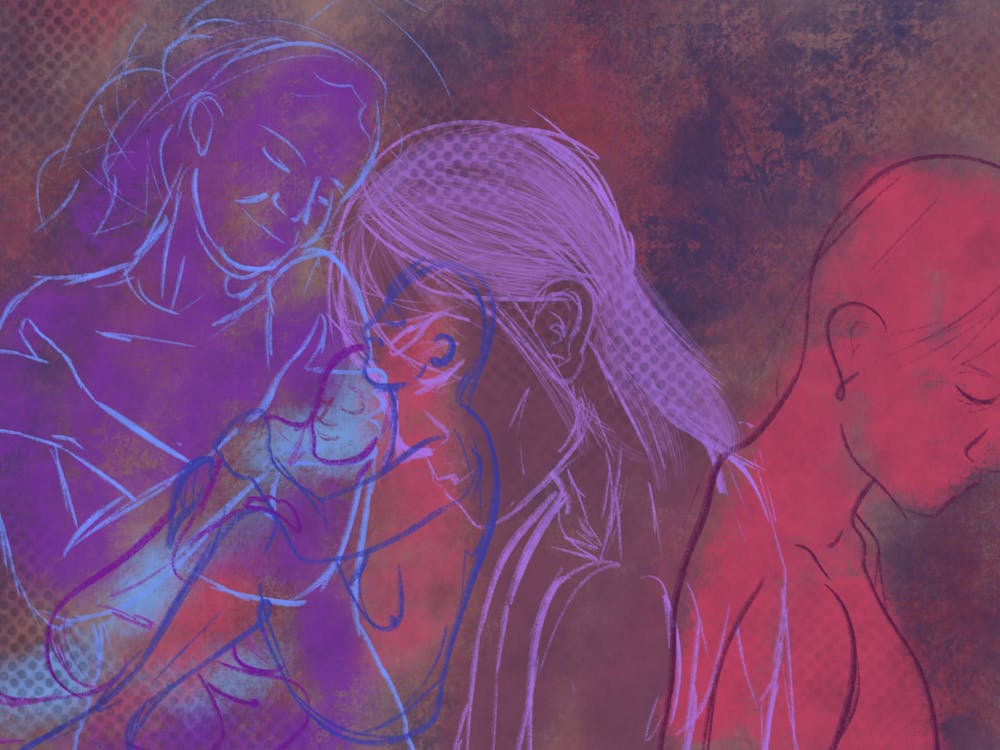As students across the country continue to probe minority rights on college campuses, many University students have come to recognize the importance of understanding peers’ varying perspectives through dialogue.
During its event Wednesday night, the Minority Rights Coalition partnered with Sustained Dialogue to allow students to discuss and compare their versions of the “U.Va. Experience.”
“It’s really important to get out of your comfort zone, especially at U.Va. and especially if you’re white here,” said MRC Vice-President of Outreach Emily McDuff, a second-year Engineering student. “It’s very easy to get in your groove. You need to shake things up and remind yourself that there’s so many other people to learn from at U.Va.”
The event saw attendance from roughly 200 students and faculty members. As participants walked through the door, they were given a nametag with a random table number on it to sit at. This way, students who came in groups were split up and every table presented a range of ages and identities. In addition, each table had a member of Sustained Dialogue or MRC as a moderator.
Sustained Dialogue members were trained to effectively lead the various events they help put on each month, said third-year College student Macy Early, Sustained Dialogue vice chair of external relations.
“[Sustained Dialogue] is actually internationally affiliated, so we have yearly training where people come down from the Sustained Dialogue Institute in Washington, D.C. and do training with us about facilitating conversations, being fluent in inclusivity and diversity issues, [and] ways to ask probing questions and ground conversations in personal experience,” Early said.
To start, first-year College student and MRC member Joan Lee read a number of statements such as, “I have felt unsafe walking home at night,” and, “I have been uncomfortable expressing PDA with my significant other before,” and asked everyone in attendance to stand or raise their hand for each statement they felt applied to them. Following this, six speakers, one of whom was anonymous, spoke about different aspects of their identity and how actions of members of the community caused them to feel. Tables then began dialogues, beginning with an introduction and what drew them into the event.
The conversation was governed by a number of ground rules, including that participants should use “I” instead of “we” statements and should “assume best intent” of those who share.
“The truth is Sustained Dialogue doesn’t want to create a safe, as in a comfortable, environment,” Early said. “We want to create safe challenging environment. So something that allows people to understand that their experiences are going to be validated.”
Confrontation and controversy are part of the dialogue and key to making progress, she said.
“[Individuals are] going to be considered experts in their own opinions and their own experiences but they’re not going to automatically be considered right. They’re going to experience push back and there will be confrontation and controversy,” Early said. “If we walk around without confronting all of the nasty offensiveness of the culture we live in, then we aren’t going to progress as a society.”
One of the policies listed on the table handout mentioned that “stories can leave” the room, “but names stay.” The MRC provided flashcards on which attendees wrote statements they heard or lessons they learned, which they planned to share with someone else.
“The reason we put on this event is so people can learn and have their perspectives opened and then take that knowledge outside of here and shape U.Va. at large and remind people to check their privilege and that they can use the privilege that they do have, even if it isn’t as much as others, to affect change in the community,” McDuff said.
MRC had already started working with the University’s office of diversity and equity and others to develop a program for the spring semester called UP. The program will emulate multi-cultural sensitivity training and is meant to bring issues of privilege and understanding alternate perspectives to those who do not usually attend this kind of event.





